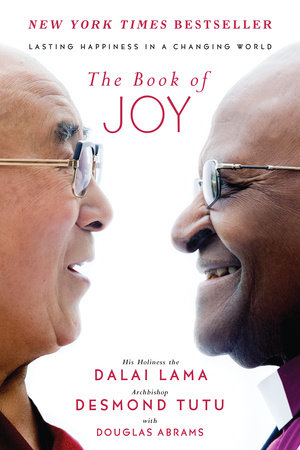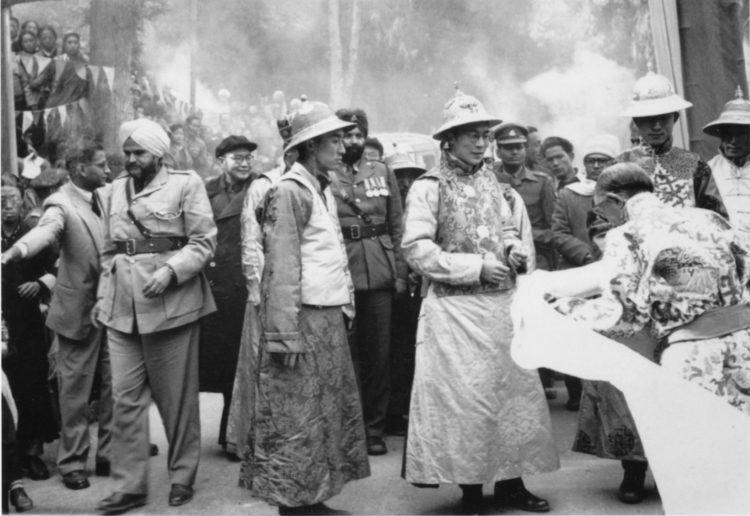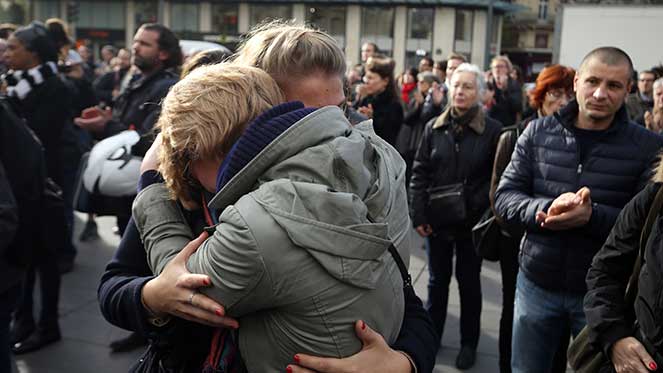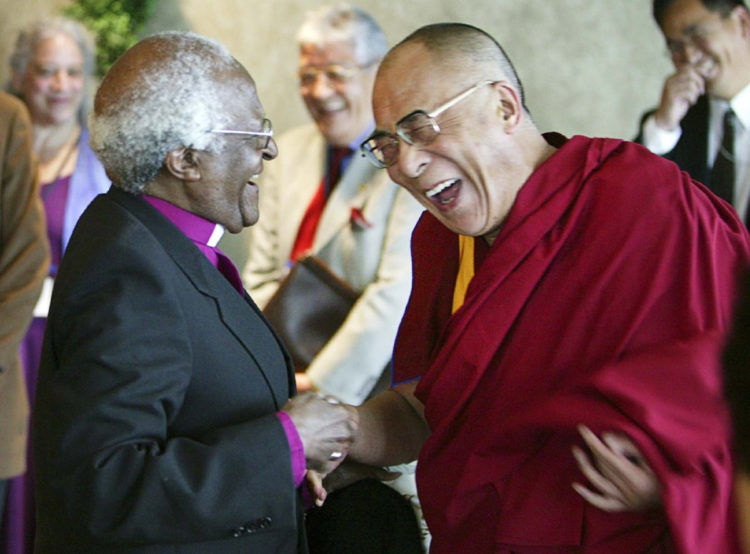Sometimes a book comes into your life at exactly the right moment, offering a path forward that was formerly invisible to you. This was my experience with The Book of Joy, a week-long conversation between the Dalai Lama and Archbishop Desmond Tutu, aptly facilitated by Douglas Abrams, the book’s editor.
When a friend recommended The Book of Joy I was agonizing over long-standing tension with a sibling, our trigger-happy president and the inescapable climate change warnings produced by Hurricane Harvey. Joy seemed beyond my reach, but, ever hopeful, I opened The Book of Joy.
I had been operating under the assumption that joy and happiness are synonymous.
The Dalai Lama is quick to point out the difference. Joy subsumes happiness, which tends to focus on personal satisfaction. Joy, on the other hand is not ego-driven but concerned with the suffering of others.
We feel joy when we stop focusing on our own suffering and shift our perspectives to the experiences of others. It’s the ability to put yourself in the other’s shoes, to imagine their suffering, even when, like my brother, they make life difficult for you. This shift allows for compassion towards the other and takes away their power over us.
The Dalai Lama and Desmond Tutu discovered joy from the depths of their suffering.
Each man, over time, learned to develop compassion towards his enemies, For the Dalai Lama it meant softening his heart towards the Chinese government whose attacks on Tibet, forced him to migrate permanently to India. For Desmond Tutu the challenge was to be compassionate towards the South African Apartheid government that brutally attacked and imprisoned his people.
Compassion is our better nature. It ushers us into the light.
On a national scale we just witnessed compassion in the outpouring of aid and support for the victims of Hurricane Harvey. On a smaller scale compassion can be a daily practice when we smile at strangers, or practice random acts of kindness.
While compassion may be the foundation for a state of joy, that’s not enough. It’s necessary to stand on the pillars of joy. These consist of four qualities of the mind: perspective, humility, humor, and acceptance, and four qualities of the heart: forgiveness, gratitude, compassion, and generosity.
The starting point is often contingent on shifting our perspective from I and me and mine to us and ours.
Humility then becomes a by-product of perspective, allowing us to recognize that we are interdependent as members of our neighborhoods and the larger global community.
Humor softness the heart.
It was central in the week-long dialogues between these two great spiritual leaders. They were constantly laughing and poking fun at one another; humor brought them closer together, but it was never applied maliciously. Their humor was sweet and respectful. I could see their smiles through the printed words.
This is how the Archbishop frames acceptance: “When one grows in spiritual life, you are able to accept anything that happens to you.”
He cautions against running away from difficulties and instead asking oneself, “How can I use this as a positive experience?” This is not intended to be a passive practice but accepting what’s difficult and working to change what needs to be changed. I think this is the basis for the social activism of both men.
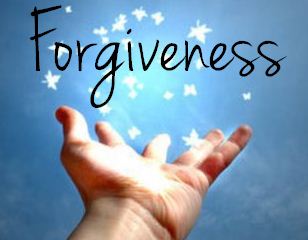 Forgiveness is a biggie. It carries a wallop. The Dalai Lama regards forgiveness as liberating. As I practice forgiving my brother, I can move myself out of the past and be more present oriented.
Forgiveness is a biggie. It carries a wallop. The Dalai Lama regards forgiveness as liberating. As I practice forgiving my brother, I can move myself out of the past and be more present oriented.
Most of us are familiar with the practice of gratitude, but, if you’re like me, you tend to neglect it. Both spiritual leaders consider gratitude a primary practice.
The Archbishop regards gratitude as something that connects us all. He uses the example of being grateful for the food we are eating and for all those who have made our meal possible—farmers, grocers and cooks.
Compassion involves self-compassion as well as compassion for others. Many of us, myself included, are hypercritical of ourselves. The Dalai Lama describes self-compassion as having compassion for our human frailties.
 Generosity is another biggie. It can enlarge our hearts. When we give to others, not just monetarily, but with our time and concern we feel valued. Numerous research studies point to the enhanced sense of self people feel when they volunteer.
Generosity is another biggie. It can enlarge our hearts. When we give to others, not just monetarily, but with our time and concern we feel valued. Numerous research studies point to the enhanced sense of self people feel when they volunteer.
For The Book of Joy to have appeared in my life when it did feels like a divine intervention. I’m very grateful for the road map it offers for managing my challenging relationships and for facing the upheaval in the world at large. I know that I will read it again and again.
